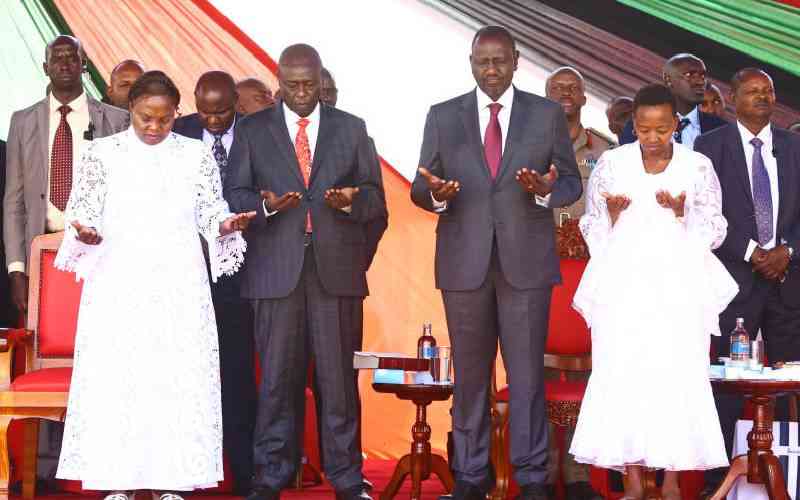×
The Standard e-Paper
Smart Minds Choose Us

When a distinctive feeling to share my thoughts on the ongoing competition for prayers for the nation first crossed my mind, I thought I was going nuts. I wondered if this was not the Sanballat and Tobiah spirits the President alluded to from Nehemiah 4, in a veiled attack to critiques of his administration's glorified weekly prayers.
Two things troubled me: One, I am a Christian; and two, I absolutely believe and am a witness to the power of prayers.